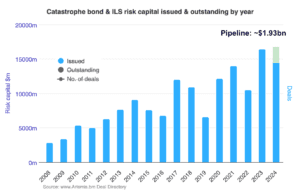State Dangles Cash To Fill Workforce Gaps
Jobless, Employers Could Benefit Under $50 Million Grant Program
The latest batch of employment data estimated that Massachusetts had about 181,000 unemployed workers in January, a month when the statewide count of jobs stood 131,000 below where it was before COVID-19 hit.
Meanwhile, according to Gov. Charlie Baker, Massachusetts has about 200,000 open jobs that businesses and nonprofits are struggling to fill. And so the administration will take a new approach: offering cash injections to encourage employers to look beyond traditional candidate pools.
Baker on Wednesday unveiled a new $50 million grant program to incentivize hiring and help defray the costs of onboarding workers who do not yet have skills in a new field. Eligible employers can receive up to $4,000 per employee, capped at a total of $400,000 per organization, to cover training costs or signing bonuses.
The program is already accepting online applications from employers, and money will flow on a first-come, first-served basis.
Any non-government employer in good standing with the state, including nonprofit and for-profit entities, can participate. Hires must be made after March 23, retained for at least 60 days, given at least 30 hours of work per week, and paid between $14.25 per hour and $42.50 per hour for a company to qualify for a per-employee grant.
The program, dubbed “HireNow,” will help “employers and prospective employees find one another and kick each other’s tires and get back to work,” Baker said.
“We’ve had lots of conversations with employers about the difficulty associated with filling many of their open positions,” Baker said at an event in Cambridge’s LabCentral, where he outlined the new initiative. “Many of them have said to us, ‘It’s not about the medium term. It’s really about the short term. How can we figure out a way given how tight times are generally to bring people on and give them the time and the attention they need to skill to the point where we don’t need to watch over them any more?’”
“This idea of creating what I would call a kick-starter fund — that’s how I think about it — will give employers an opportunity to go outside their traditional circles to find people who they might not normally bring in the door,” he added.
The public health crisis dealt a major blow to the state’s economy, prompting the loss of nearly 690,000 jobs between February 2020 and April 2020, according to Bureau of Labor Statistics data.
Since then, the outlook has steadily improved, but employers have only clawed back about 80 percent of the positions lost in those tumultuous first months and thousands of Bay Staters remain unable to find work.
A key challenge, officials said Wednesday, is the gap between the skillsets of prospective employees and the current landscape of available jobs.
About 35 percent of the state’s open jobs are in “professional and management services,” while the supply of workers seeking positions “is a little different,” according to Labor and Workforce Development Secretary Rosalin Acosta. Lt. Gov. Karyn Polito added that the state has about 20,000 open jobs in the hospital sector in particular, plus another 20,000 in fields requiring substantial computer or math skills.
“The folks that are out there that are looking for work and want to work — the biggest complaint we hear so many times is that they can’t see themselves in the jobs that are available. They don’t know how to get there,” Acosta said. “What I am really, really hoping this program will do is help our employers by giving them some resources to look beyond the normal web, the normal catchment of folks that they will hire from.”
Acosta also said the program could help boost equity in many fields, particularly alongside other efforts such as apprenticeships and the Career Technical Initiative that aims to train 20,000 workers over four years by offering vocational school training to students as well as adults.
“We’re doing these things because we know that people can’t afford to just go to school and not work,” Acosta said. “They need to earn their money while they learn, and then they become, guess what, a real, loyal employee to you.”
Baker’s office said the $50 million program will be funded with American Rescue Plan Act funds the Legislature already approved to be spent on workforce development.
“There are just simply not enough skilled people to fill the jobs that exist in our economy here in Massachusetts,” Polito said. “But if you get your foot in the door and you’re willing to work hard, this program will allow the employer to invest up-front dollars in onboarding you, signing you on and providing some basic training for you to start working in a new career.”





